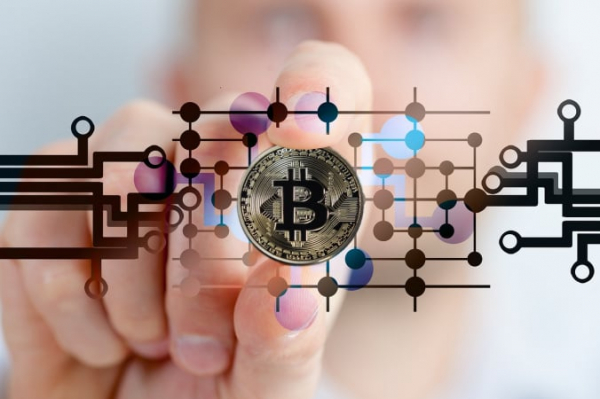The main thing on the cryptocurrency market.
The METIS rate has grown by 300% for a month
In December 2023, the MetisDAO organization launched an ecosystem development fund with a budget of 4.6 million METIS (about $100 million at that time). Against this background, the network’s performance and the price of the token skyrocketed. This was stated by DeFi expert Thor Hartvigsen.
Since December 18, 2023, the asset's price has risen from $22.4 to $83 at its peak, according to TradingView. Then the rate rolled back to $79.2.
Over the month, the increase was almost 308%. However, the asset price is still below the ATH set at $135 in March 2022.
The network's volume of locked assets (TVL) has also increased. Since the beginning of December 2023, the figure has jumped from $27.7 million to $51.17 million.
In his publication, Hartvigsen referred to the example of the launch of a similar initiative by the Avalanche project. According to him, thanks to the development fund, the price of AVAX has increased eightfold, the current indicators of Metis are not the limit.
Mt. Gox mistakenly paid double compensation to clients
Some of the clients of the bankrupt cryptocurrency exchange Mt. Gox received double compensation as a result of the error. The company has requested a refund from users.
On December 21, 2023, it was reported that Mt. The crashed Gox began paying compensation to customers. According to messages on social networks, they received a payment for bitcoins blocked on the exchange almost ten years ago.
Later on the Reddit forum, some users announced that they had received double compensation from the exchange. Representatives from Mt. Gox sent such customers letters notifying them of a “system failure” and requesting a refund.
The problem with erroneous payments has caused mixed reactions from the public. Some clients suggested that exchange representatives go through the KYC verification procedure and wait 10 years before they can get their money back. Thus, they drew a parallel with the bankrupt company.
Recall that Mt. Gox closed in 2014 after a hacker attack that led to losses of 850,000 BTC (more than $36 billion). In November 2023, the company's trustee Nobuaki Kobayashi announced the company's intentions to begin paying compensation at the end of the year.
Thunder Terminal suffered a $190,000 hack.
The decentralized trading platform Thunder Terminal encountered a hacker attack, as a result of which the attacker withdrew 86.5 ETH (about $190,000).
The incident was brought to the attention of an on-chain detective under the nickname ZachXBT in his Telegram channel. According to him, the hacker transferred funds through the Railgun ecosystem.
Thunder representatives later released a statement, noting that private keys were not affected.
“Only 114 wallets out of more than 14,000 were affected. Funds in safety. We stopped the attack in less than 9 minutes,” the platform’s post says.
In a separate report of the incident, Thunder said the attack occurred due to requests for withdrawals that “the server thought were authorized due to leaked session tokens.” The team also confirmed the loss of about 86.5 ETH and 439 SOL (about $47,800).
“All stolen funds will be returned in full, and affected users will be provided with 0% commission and $100,000 in credits,” — noted the project team.
At the same time, the attacker called Thunder’s posts “an absolute lie” in an on-chain note. He warned that he has all user data at his disposal.
The Central Bank of India spoke about the risks of introducing cryptocurrencies
The Reserve Bank of India (RBI) expressed doubts about the possible integration of cryptocurrencies into financial system of the country. Local media reported this.
The regulator believes that digital assets do not have economic potential, threaten macroeconomic stability and pose high risks for developing countries. RBI officials added that cryptocurrency, at best, can be viewed as a tool for gambling.
According to the Central Bank of India, digital assets violate the country's monetary sovereignty and facilitate illegal activities such as money laundering and terrorist financing. The source claims that India may agree to stricter rules to protect the economy – in particular, a complete ban on cryptocurrencies.
“The government cannot ignore the concerns of the RBI while taking a decision on cryptocurrencies as it is responsible for monetary stability in India,” said an RBI spokesperson.
In its statement, the regulator praised the potential of introducing a central bank digital currency ( CBDC). However, he believes that cryptoassets should not be compared to CBDCs due to the risks associated with them.
“India should not expose its people and its financial systems to unnecessary risks. The introduction of CBDC is intended to promote the technology in a more secure manner,” the RBI said in a statement.
The regulator added that the launch of the digital rupee creates a number of additional capabilities and reduces the costs of cash processing, printing and logistics management. According to the RBI, CBDC is a useful tool to stimulate India's rapidly developing digital economy.
Recall that in July 2023, the Indian regulator allowed international payments through the digital rupee. In August, India supported the regulation of the cryptocurrency market as the head of the G20 and called for the creation of uniform rules for this area.

